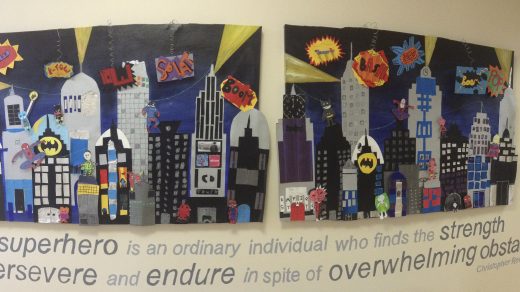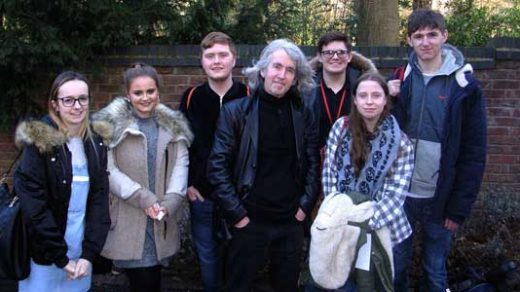Call to ‘re-prioritise personal development in primary schools to safeguard children’s futures’ as Lessons4Life campaign is launched

A standard assessment to gather children’s personal development knowledge towards the end of primary school should be introduced in response to the rise in major societal issues impacting young people, according to a new national campaign.
Lessons4Life also calls for a rebalancing of primary curriculum priorities to make space for teaching personal development effectively; and for longer term investment in personal development education, including teacher training and ongoing professional development.
The campaign, which has been launched in response to the worrying increase in growing threats and pressing public health concerns around issues such as knife crime, childhood obesity and mental health, comes as the new Labour government outlines its commitment to delivering the ‘best life chances for every child’.
Hayley Sherwood, CEO of 1decision, who is leading the Lessons4Life campaign, said: “More early education for primary school children, including additional focused lessons, is necessary to address these issues – waiting until secondary school is too late.
“Assisting children with personal development is crucial as it nurtures emotional resilience, healthy relationships and essential life skills.
“It empowers them to face life’s challenges, make informed choices, and become well-rounded individuals who contribute positively to society, setting the foundation for a fulfilling and successful future. Personal development must be given much greater prioritisation than it currently receives, and there is a strong case that progress and attainment in this area can and should be measured.
“Why? Because we need to focus more on prevention, not cure, to reduce the significant societal issues we are facing in this country.
“Our children are vulnerable, and we should be doing everything we can to protect them from growing threats in society. PSHE [personal, social, health and economic education], RSE [relationships and sex education], British values, protected characteristics and character education have all been thrown at schools with too many grey areas around assessment and curriculum coverage.
“Our position is that ‘better’ resourced personal development will directly impact on these issues – but that schools need even more support to inform their focus.”
The Lessons4Life campaign has three asks:
1. To introduce an assessment to gather children’s personal development knowledge towards the end of primary school.
Hayley said: “There is currently no way of formally and consistently assessing children’s knowledge of personal development and evaluating various aspects of their emotional, social and moral growth at key stages of their education, for example through SATs.
“In response, we have created a draft test ourselves, which we are trialling in 200 schools. This offers schools the ability to quickly assess and gather data on their pupils’ knowledge at Year 5/6.
“Results offer teachers crucial personal development data, which does not currently exist, before children transition to secondary education.
“These results help them address gaps in knowledge for individuals/groups and sharpen the focus of their personal development education provision.
“By identifying how schools are closing gaps in personal development, staff can be confident they are preparing pupils for the challenges of secondary education.
“This evidence can also improve inspection outcomes by meeting Ofsted grade descriptors on schools’ intent to support the personal development of all pupils and the quality of their implementation.
“We feel the principle of such a test (which could also be created for Year 10/11) may prove to be a useful starting point for further development by the Department for Education and consideration given as to whether it becomes a statutory requirement for schools.”
2. To find a way to rebalance primary curriculum priorities to make space for teaching personal development effectively.
Hayley said: “The new government should consult with the teaching profession on doubling the amount of time in the curriculum for coverage of personal development topics from the current (commonly taught within PSHE lessons) 60 minutes per week.
“We recognise that space will need to be created in an already cramped curriculum, however this deserves higher prioritisation: as we know too well, education is not just about what happens within the four walls of a classroom – it is about creating a culture of responsibility and accountability within our communities.
“Lessons may be focused on areas for development identified in the fully-fledged personal development test. For example, there could be more around the impact of knife crime, and additional lessons on conflict resolution and peer pressure.
“On obesity, greater focus on healthy eating and lessons on cooking, making healthy choices and mindfulness, would be natural early-intervention activities. The outcome would be more effective education (especially in primary schools) and, through earlier and better targeted intervention, the clear potential to impact on major societal challenges and related government spend over time.
“We also know there are schools who are going above and beyond the typical 60 minutes per week, and we want to encourage more schools to take the same approach.”
3. To reinvest attributable cost savings on related societal issues made in the longer term into personal development education.
Hayley said: “Schools are in a very strong position to support children in developing positively and creating an impact on the next generation.
“To help educate children in areas such as conflict resolution, emotional regulation and self-care, improved self-worth and self-confidence, reduced anxiety, healthy relationships, reduction of teen pregnancies, and better understanding of nutrition, we can reasonably expect that increased coverage of personal development will impact on societal issues in the long term.
“A desirable follow-on benefit would be to reinvest attributable cost savings on related societal issues made over the longer term into personal development education, including teacher training, through the new Initial Teacher Training and Early Career Framework (ITTECF) framework and ongoing professional development, and through high-quality resources.
“In the shorter term, however, we might also consider how pupil premium funding may be used to support personal development.”
Hayley, who is also governor for PSHE and mental health at The Leys Primary and Nursery School in Stevenage, is now recruiting a number of partners and supporters to collaborate on the Lessons4Life campaign.
She insisted: “In the fight against major societal challenges, education is our most powerful weapon.
“We believe in the transformative power of schools to shape the future and foster personal, social and emotional growth. Seeking to address issues in secondary schools is too late – we have to do more in primary.
“By arming our children with knowledge, empathy and resilience, we can create a generation of changemakers who are equipped to build a better society for all.”
Hayley added: “It will not be easy, and the road ahead may be long and challenging. But by investing in the education and empowerment of our young people, we invest in a brighter, more hopeful future, and one where every child may grow up in a safer and healthier country.”
1decision provides interactive PSHE, relationships and health education, and personal development resources for primary children in 2,000 schools in 47 counties across the UK and a growing number of international schools in 19 countries.
Established in 2011, 1decision offers schools inspiring and engaging topic-based resources to enhance and evidence the delivery of statutory relationships and health education through PSHE and wider personal, social and emotional development for Key Stage 1 and Key Stage 2 children, helping pupils to prepare for secondary education and life beyond.
With dedicated resources for children aged 3-11, 1decision’s popular whole-school PSHE programme helps teachers and pupils alike navigate through modular content.





